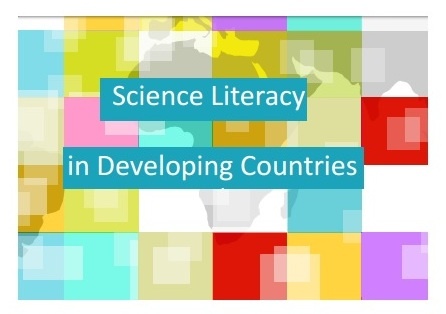Landscape Survey of Science Literacy in Developing Countries: Summary Report


In late 2016, NIDA undertook a landscape research survey in the field of Science Literacy (SL) in developing countries in order to assemble and assess available evidence on policies, on initiatives which have taken place or were in progress, on evaluation of what works and what does not and other data. In addition, initiatives and activities in the developed world which were felt to bear potential for replication or adaptation in developing or transitional countries were examined.
___________________________________________________________________________________________________
The Network for Information and Digital Access (NIDA) works to promote effective utilization of information and knowledge. NIDA’s main focus is public access to information, communication and interaction within a holistic approach. |
The NIDA's researchers worked closely with key stakeholders and interested groups and individuals around the world on a landscape research survey in the field of SL in developing countries. NIDA’s global network was used as the initial base for engaging participation; for increased depth it was enhanced by working with leading partners in science. Moreover, a wide variety of communication channels were used.
The survey confirmed that ...
... broad access to scientific information is key for people to understand, participate and respond to the challenges that development poses … illiteracy may be a much stronger predictor of poor public health than low average income. This is illustrated by India, where research suggested that increasing literacy within a process of alleviating poverty has a greater impact on public health … The Daejeon Declaration on Science Technology and Innovation (STI) Policies for the Global and Digital Age, emerging from the OECD Ministerial Meeting, Daejeon, 2015, stated a commitment to support STI to foster sustainable growth, job creation and enhanced well-being. The Sustainable Development Goals (SDGs) also recognize that science enlarges understanding of nature and society. ... in the context of the developing world, new definitions of SL are required to ensure that public communication of science and technology addresses real needs ... |
The final stage in the survey of science literacy was to collect examples of recent or ongoing practical activities that were felt to have the potential to be adapted to a range of different cultures and contexts. NIDA shall continue to add examples as they are recommended to it (NIDA: Innovative Initiatives in Science Literacy).
The process closed with preparation of a NIDA report : Landscape Study on Science Literacy (SL) in developing countries (48 p., in English), illustrated with case studies. Translations of the Executive Summary are also available in French and Spanish .
The conclusion of the report, to a large extent, is directed towards providing readers with forward thinking for the establishment of their organisation and development of a programme of activities.
NIDA invites your comments and observations on the report. If you know of additional innovative initiatives that could be show-cased or would like further details please contact NIDA directly at [email protected].
NIDA also welcomes your comments on the draft definitions of terms for Science Literacy with a view to their improvement and to come to a common understanding. Please complete this form.
___________________________________________________________________________________________________
Related content:
Health literacy toolkit for low- and middle-income countries

